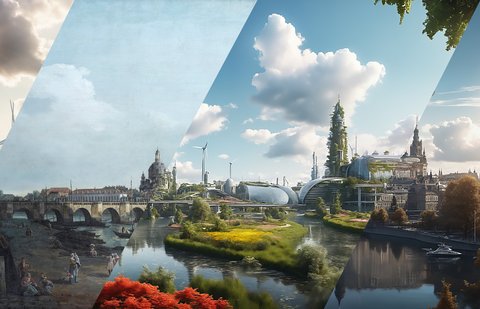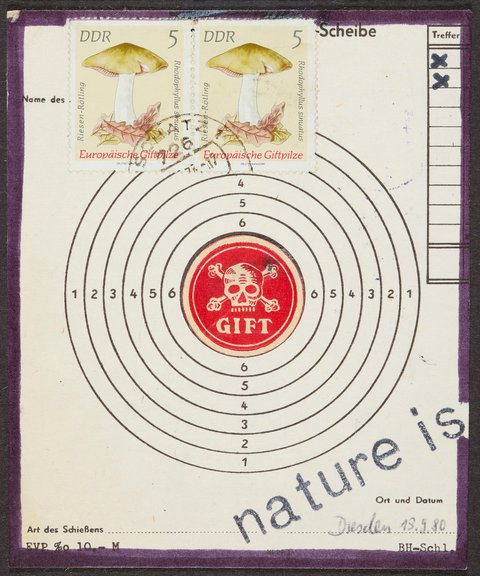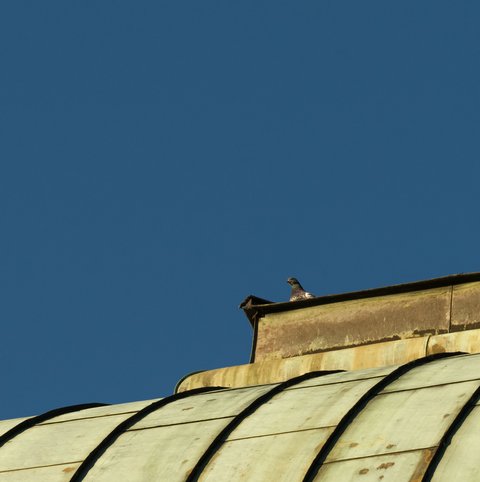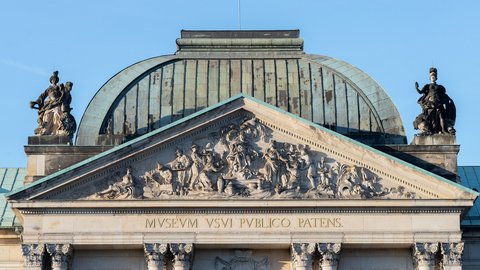THE FUTURE OF THE CANALETTO VIEW
The Canaletto view is probably the most famous city view of Dresden. What it will look like in the future is, of course, uncertain. A visit to the children's biennial "Planet Utopia" at the Japanisches Palais and also here on voices is a chance to see how artificial intelligence imagines the future of the famous city view. A team of students from TU Dresden has developed a format that we can use to give direction to AI's dream of the future.

The poisonous mushroom and the Weinbergskirche: peace activism using a shooting target?
Starting in the 1970s, a type of artistic dialogue developed in East Germany that took place not in museums and galleries but, instead far from the world of public exhibitions, via the postal service. Soon after, the Dresden artist Birger Jesch launched what he called the “first Mail-Art Project of Dresden”, posting 300 cards featuring shooting targets to recipients around the world, for them to design and return.

Palais garden #3 - Vermin and virtu: Possible conflicts with biodiversity in the museum context
The garden at the Japanisches Palais is a place where human beings, plants and animals can be said to coexist. It is a place where ecological cycles can be seen and natural processes observed. In a museum’s inner courtyard, however, we are caught between teaching people about the topics of the future and preserving valuable art by preventing pest damage. How can that balance be maintained?

Discover the Japanisches Palais with all your senses Projects to overcome our barriers
By making it easier to access our cultural heritage, the Japanisches Palais (Japanese Palace) is helping to promote democracy. Barrier-free access fosters diversity by promoting a variety of perspectives and experiences and sensitising people to a wide range of topics. Katharina Parow presents some of our inclusion programmes.
